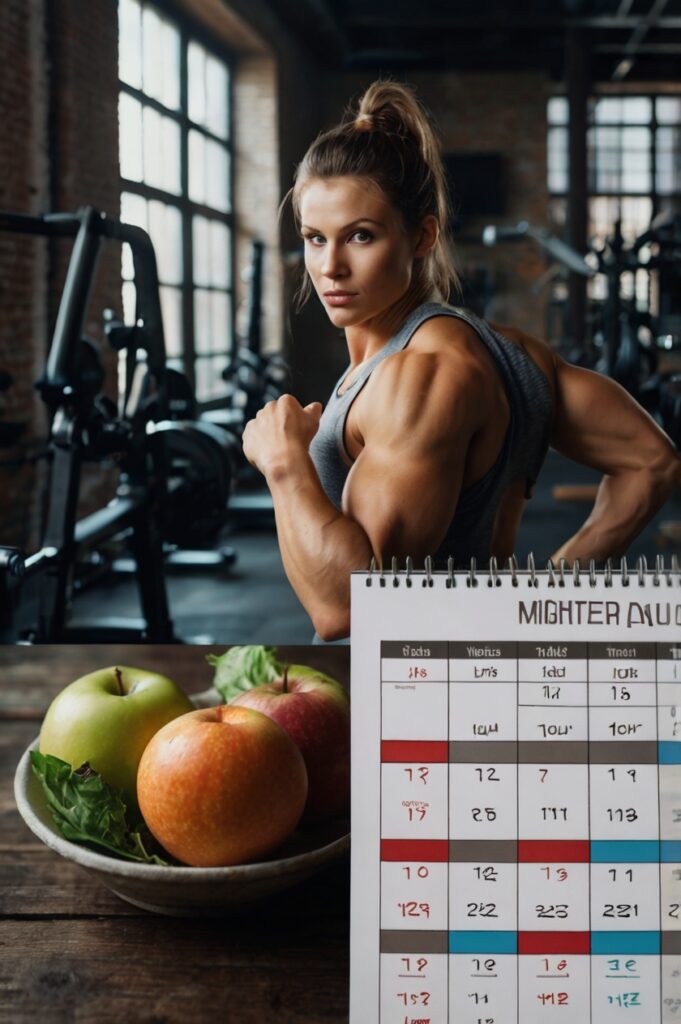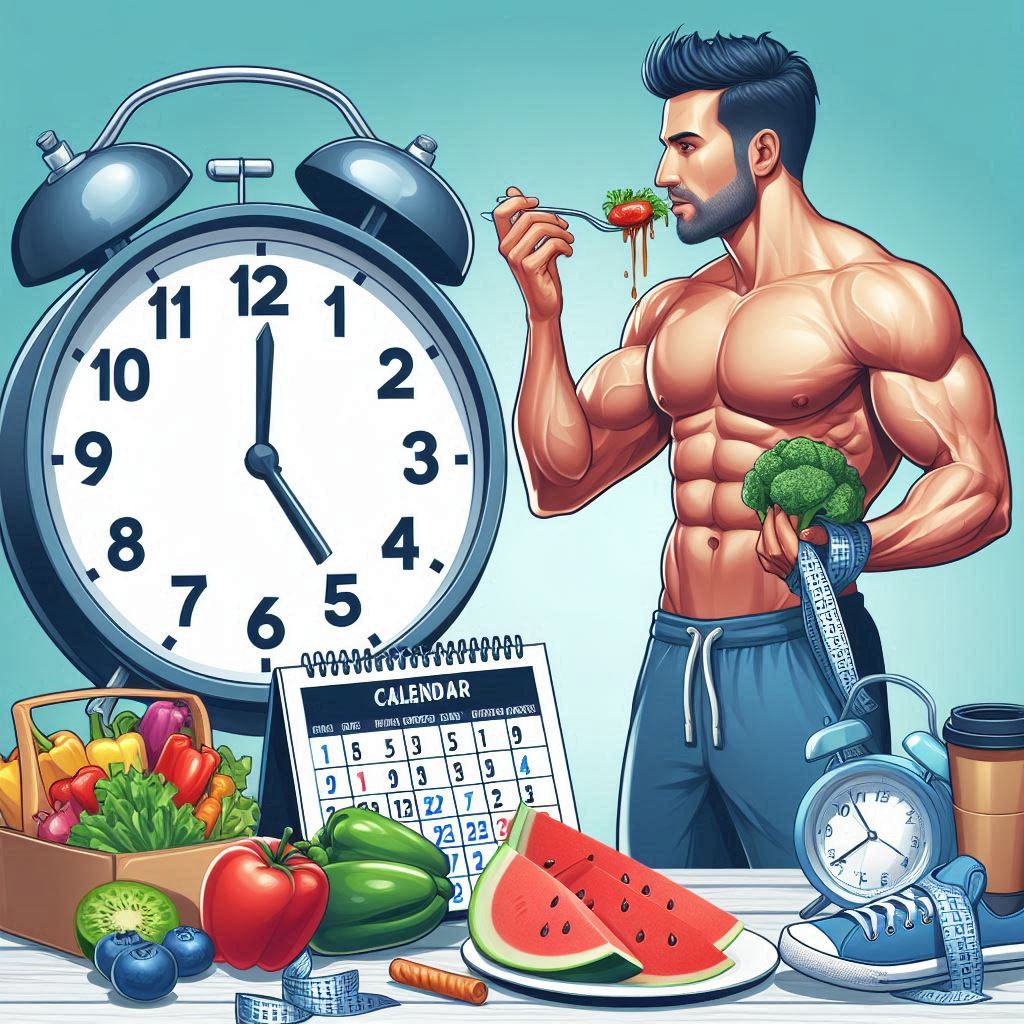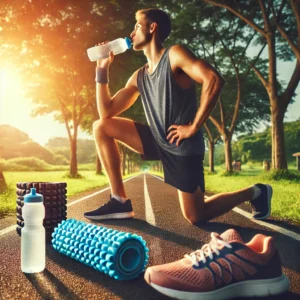Introduction
Ever felt sluggish or cramped during a workout after eating? You’re not alone. Finding the ideal time to work out after eating can be the difference between a personal best and a struggle session.
Your body needs time to properly digest food before demanding physical activity. Exercise too soon, and you might face nausea or fatigue. Wait too long, and you could hit an energy crash mid-workout.
In this science-backed guide, we’ll reveal:
✅ Exactly how long to wait after eating before working out based on meal size and type
✅ The best pre-workout foods for energy without discomfort
✅ How different exercises (from yoga to HIIT) affect your ideal timing
✅ Expert tips to optimize digestion and performance
Whether you’re an early morning runner or an after-work gym-goer, understanding the ideal time to exercise after eating will help you train smarter and feel stronger. Let’s break down the facts so you can power through every workout with confidence.
By the end, you’ll know exactly when to eat before a workout for maximum energy and minimal discomfort. Let’s dive in!
Table of Contents
1. The Science of Digestion and Exercise: Finding the ideal time to work out after eating
Understanding the best time to exercise after eating is crucial for both comfort and performance. When you eat, your body initiates a complex digestive process that directly impacts your ability to work out effectively.
Here’s what happens physiologically when you exercise too soon after meals:
- Blood flow diverts from digestion to working muscles
- Undigested food may cause cramps, bloating or nausea
- Energy availability fluctuates dramatically
Key factors determining your ideal wait time:
✓ Meal composition (carbs digest faster than fats/proteins)
✓ Portion size (larger meals need more digestion time)
✓ Exercise intensity (HIIT vs. yoga have different demands)
✓ Individual metabolism (some digest food much faster)
What research says about workout timing after eating:
A Journal of Sports Sciences study found athletes performed 15% better when allowing proper digestion time before exercise. The optimal window varies:
- 30-60 minutes for small, carb-based snacks
- 1-2 hours for balanced meals
- 2-3+ hours for large, protein/fat-heavy meals
Common mistakes people make:
⚠️ Assuming “fasted workouts” always work better
⚠️ Not adjusting for different meal types
⚠️ Ignoring personal digestive responses
This scientific foundation helps explain why finding your ideal post-meal workout window is so important for both comfort and results. Next, let’s explore exactly how long to wait for different scenarios…

2. How Long Should You Wait to Exercise After Eating? (Evidence-Based Guidelines)
A. Small Snacks (Wait 30–60 Minutes)
Best for: Quick energy before morning workouts or short sessions.
Examples:
- Banana with almond butter
- Greek yogurt with berries
- A smoothie (oats + protein powder + almond milk)
Why? These foods are easily digestible, providing fast fuel without weighing you down.
B. Medium Meals (Wait 1–2 Hours)
Best for: Moderate workouts like weightlifting, cycling, or Pilates.
Examples:
- Oatmeal with nuts and honey
- Grilled chicken with rice and veggies
- Scrambled eggs with whole-grain toast
Why? Balanced meals with carbs + protein sustain energy without causing sluggishness.
C. Large or High-Fat Meals (Wait 2–3+ Hours)
Best for: Avoiding discomfort before intense workouts (HIIT, running, swimming).
Examples:
- Steak with sweet potatoes and avocado
- Pasta with creamy sauce
- A heavy burger and fries
Why? High-fat and fiber-rich foods slow digestion, increasing the risk of cramps and reflux.

3. Best and Worst Pre-Workout Foods
✅ Best Foods for Quick Energy
| Food | Why It Works | Best For |
|---|---|---|
| Bananas | Fast-digesting carbs + potassium | Running, HIIT |
| Oatmeal | Sustained energy release | Weight training |
| Greek Yogurt | Protein + probiotics | Low-impact workouts |
| Dates | Natural sugar boost | Pre-cardio snack |
❌ Worst Foods Before a Workout
- Fried foods (slow digestion, cause bloating)
- Spicy meals (risk of heartburn)
- Carbonated drinks (gas and discomfort)
- High-fiber veggies (can cause cramps)
💡 Pro Tip: If you’re short on time, liquid meals (like a protein shake) digest faster than solids.
4. How Workout Intensity Affects Meal Timing
A. Low-Intensity Workouts (Yoga, Walking, Stretching)
✅ Safe to eat 30–60 minutes before
✅ Light snacks (fruit, nuts) help maintain energy
B. Moderate Workouts (Weightlifting, Cycling, Swimming)
✅ Wait 1–2 hours after a meal
✅ Balanced meals (carbs + protein) work best
C. High-Intensity Workouts (HIIT, Sprinting, CrossFit)
✅ Wait 2–3+ hours after a large meal
✅ Small carb-based snacks (dates, toast) if needed
5. Practical Tips to Avoid Discomfort & Maximize Performance
✔ Hydrate smartly – Sip water, but don’t chug before exercise.
✔ Experiment with timing – Track how different foods affect your energy.
✔ Avoid heavy fats/fiber before intense sessions.
✔ Try fasted workouts (if fat loss is a goal).
⚠ Warning: If you have acid reflux or diabetes, consult a doctor for personalized advice.
FAQs: Your Top Questions Answered
1. Can I Eat Right Before a Workout If I’m Hungry?
Yes, but opt for quick-digesting carbs like a banana, energy gel, or dried fruit 15–30 minutes prior to avoid digestive discomfort. These provide instant energy without weighing you down.
Variations:
- Is it okay to eat just before exercising?:
- Quick snacks like fruit or toast can fuel your workout if eaten 15–30 minutes beforehand.
- What should I eat if I’m hungry before a workout?
- Stick to light, easy-to-digest carbs for immediate energy.
- Can I snack right before hitting the gym?
- Yes, but choose small, carb-rich snacks to prevent bloating or cramps.
2. Is It Better to Work Out Fasted or Fed?
It depends on your goals: Fasted workouts may enhance fat burning but can reduce energy, while fed workouts support better performance and muscle growth. Pair your choice with your fitness objectives.
Variations:
- Should I exercise on an empty stomach?
- Fasted workouts can aid fat loss but may lower stamina; fed workouts are better for endurance.
- Fasted vs. fed workouts: which is better for weight loss?
- Fasted cardio may burn more fat, but fed workouts sustain energy for intense activity.
- Does fasting improve workout results?
- Fasting can boost fat metabolism but might compromise strength and focus during high-intensity sessions.
3.What If I Feel Nauseous During a Workout?
Nausea often occurs from eating too close to exercise or consuming heavy meals. To prevent it, wait 1–2 hours after eating or choose lighter snacks like yogurt or fruit next time.
Variations:
- Why do I feel sick when I exercise after eating? Eating too soon or choosing fatty foods can disrupt digestion during workouts.
- How to avoid nausea during workouts. Wait longer after meals and stay hydrated to minimize discomfort.
- Can eating before a workout make you throw up? Yes, large or heavy meals consumed shortly before exercise can lead to nausea.
4. Does Coffee Count as a Pre-Workout Meal?
No, coffee alone isn’t a meal, but caffeine boosts focus and endurance. For optimal results, pair it with a light snack like a banana or toast 30–60 minutes before exercising.
Variations:
- Can I drink coffee before working out? Yes, caffeine enhances performance, but combine it with a snack for sustained energy.
- Is caffeine good for exercise performance? Caffeine improves alertness and delays fatigue, making it a great pre-workout addition.
- Does coffee give you energy for workouts? Yes, but it’s best paired with carbs or protein for balanced fuel.
5. Why Do I Feel Tired After Eating and Working Out?
Feeling tired may result from blood flow shifting to aid digestion, leaving muscles under-fueled. Avoid large meals before workouts and stick to smaller, balanced snacks for steady energy.
Variations:
- Why am I exhausted after eating and exercising? Large meals divert energy to digestion, reducing workout stamina.
- How to stop feeling tired during workouts. Time your meals properly and prioritize light, energizing snacks.
- Can eating too much before a workout make you sluggish? Yes, heavy meals can sap energy and hinder performance.
6. how long to wait after eating before working out?
The ideal waiting time after eating before working out depends on the size and composition of your meal, as well as the intensity of your exercise. According to Healthline, when you eat, blood flow increases to your digestive system to break down food. If you exercise too soon, this blood flow is redirected to your muscles, potentially slowing digestion and causing discomfort. This is why waiting 30 minutes to 2 hours is generally recommended for optimal comfort and performance.
Additionally, GoodRx highlights that the type of food you eat plays a key role in determining how long you should wait. For example:
- Light snacks (e.g., fruit or yogurt) require only 30–60 minutes of waiting.
- Large, protein- or fat-heavy meals may need 2–3 hours for proper digestion before intense exercise.
In summary, if you’re wondering how long to wait after eating before working out, aim for 30–60 minutes after a light snack and 2–3 hours after a larger, heavier meal. This timing helps prevent cramps, bloating, or reduced performance while ensuring your body has enough energy for your workout.
7. Is It Okay to Work Out 30 Minutes After Eating?
If you’re wondering, “Is it okay to work out 30 minutes after eating?” , the answer depends on what and how much you’ve eaten. According to GoodRx , light snacks like fruit, yogurt, or a small handful of nuts are easy to digest and can fuel your workout without causing discomfort. In this case, exercising 30 minutes after eating is perfectly fine, especially for low- to moderate-intensity activities like walking, yoga, or light cardio.
However, Healthline explains that blood flow shifts from your digestive system to your muscles during exercise, which can slow digestion if you’ve eaten too close to your workout. For larger meals—especially those high in protein, fat, or fiber—it’s best to wait at least 2–3 hours to avoid bloating, cramps, or nausea. Similarly, Men’s Health UK advises against high-intensity workouts shortly after eating, as they place greater demands on your body and may lead to fatigue or digestive issues.
In summary, is it okay to work out 30 minutes after eating? Yes, but only if your meal was small, light, and easily digestible. For heavier meals or intense workouts, give yourself more time to ensure optimal comfort and performance. By timing your meals and workouts strategically, you can maximize energy levels and minimize discomfort.

Final Verdict: How Long Should You Wait?
| Meal Type | Recommended Wait Time |
|---|---|
| Small snack (banana, yogurt) | 30–60 mins |
| Medium meal (chicken + rice) | 1–2 hours |
| Large meal (pizza, steak) | 2–3+ hours |
Key Takeaway: Listen to your body—adjust based on digestion speed and workout intensity.
📢 Now It’s Your Turn!
What’s your go-to pre-workout meal? Share in the comments below! 👇
By following these guidelines, you’ll maximize workout performance and minimize discomfort—no more guessing! 🚀
you may also like:
What should I do immediately after running? A Complete Guide to Post-Run Recovery
What Happens When You Start Eating Healthier? A Complete Guide to Transforming Your Body and Mind
Mediterranean Salad Recipes: A Fresh Path to Health, Flavor, and Joy
Salad Recipes for Weight Loss: The Ultimate Guide to Healthy Eating and Wellness
Unlock the Benefits of Salad: Nutritional Power for Health, Wellness, and Active Living
High Protein Salad Recipes: The Perfect Fit for Health and Active Lifestyles
More relevant articles here >>>
More Health and Wellness salad recipes >>>
More Energy and Active Lifestyle salad recipes >>>
More Cultural and Seasonal Recipes >>>
References:
“Effect of Meal Timing on Exercise Performance and Metabolic Responses” by Journal of the International Society of Sports Nutrition
“Carbohydrate Ingestion Before Exercise: Effects on Performance and Metabolism” by Sports Medicine Jounral
“Gastrointestinal Function During Exercise: Impact on Hydration and Performance” by American College of Sports Medicine Journal
“Effects of Fasted vs. Fed-State Exercise on Performance and Fat Oxidation” by British Journal of Nutrition




